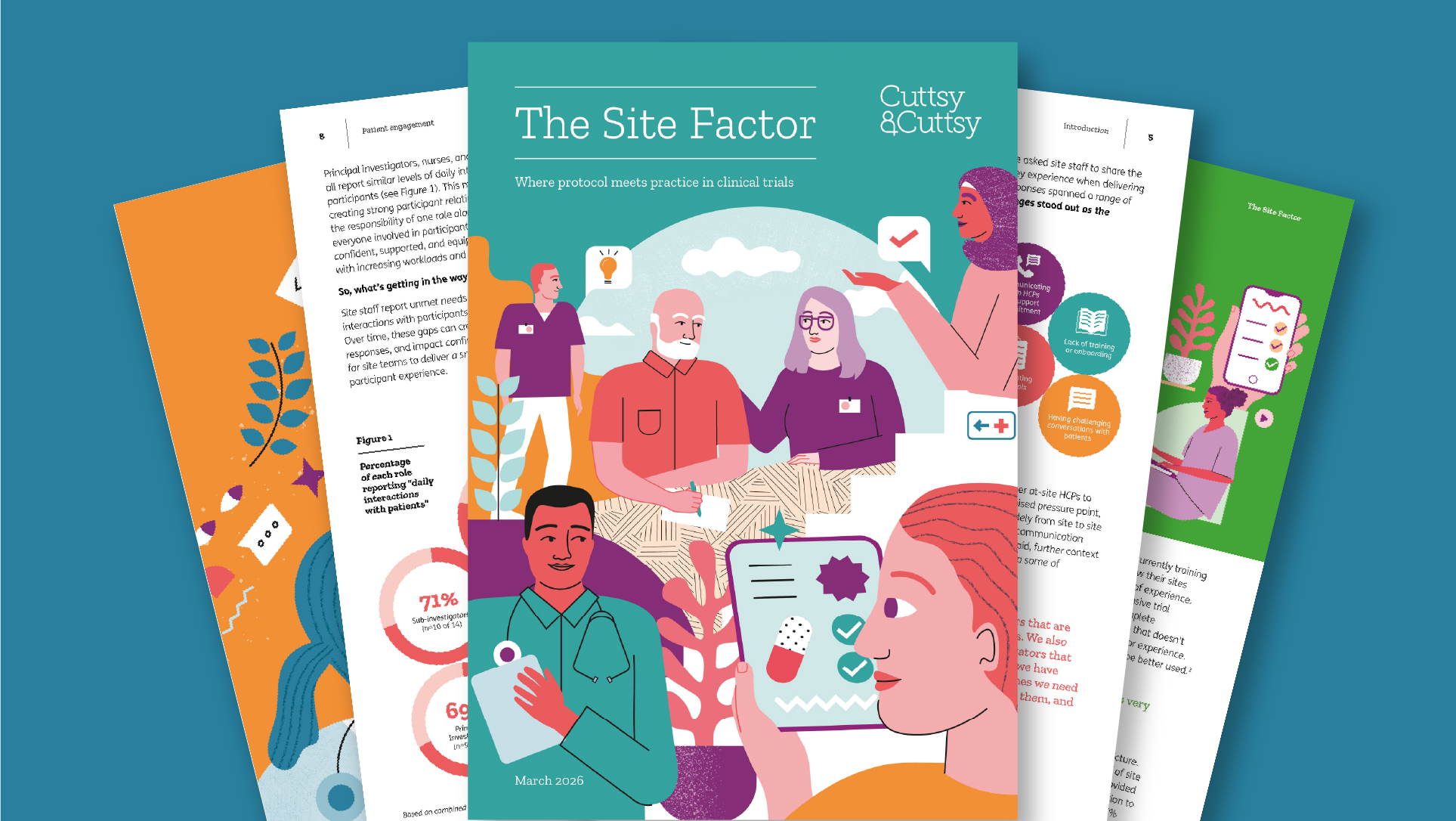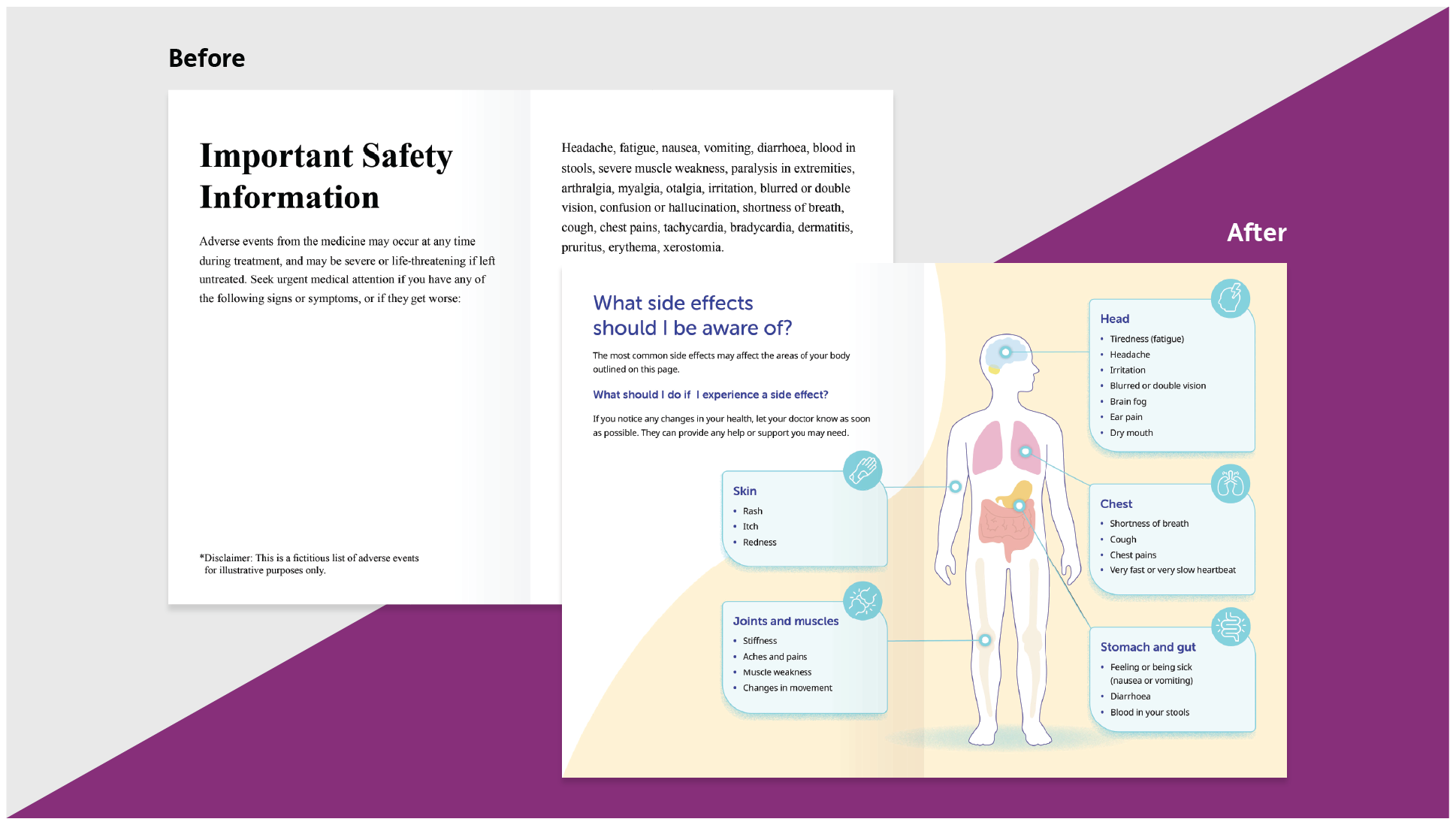Why fresh patient voices are critical to improve clinical trials outcomes
.png)
If you work in pharma clinical operations, you've likely attended conferences where expert patients share their stories on stage. You might even work with patient advisory boards to get feedback on study protocols. Expert patients are individuals who have worked with healthcare organisations or research teams before. They understand medical terminology, know how clinical trials work, and can articulate patient needs clearly. Many have attended patient advocate courses or served on advisory boards. They're incredibly valuable partners in research.
But expert patients are only a small part of the general patient population. The majority of people living with a condition haven't been involved in research or advocacy programmes. They might not use perfect terminology or know the research process — and that's exactly why their perspective is so important. Their views are untouched by industry jargon or prior coaching. They are just everyday patients, living their lives while managing their condition.
While expert patients provide valuable insights and a depth of knowledge, we also need to find ways to connect with everyday patients who haven’t been involved in research before. These fresh voices can bring something invaluable to clinical trials — raw, unfiltered perspectives that can reveal gaps in processes and help design more patient-friendly studies that can transform how you approach patient recruitment and retention.
A 2025 commentary in Multiple Sclerosis argued that to boost research impact, we must engage a broad, representative community of patients rather than relying only on a small group of "expert patients." The message is clear: we need both expert advocates and first-time voices at the table.
The Power of Unfiltered Patient Stories
When you speak to patients who haven't told their story dozens of times at conferences, you get the honest, unvarnished version of their experience. They describe confusing paperwork, anxiety while waiting for test results, appreciation for a nurse's kindness, and frustration with scheduling mix-ups — details that might not appear in a polished conference talk.
This raw truth is a goldmine of insight. It reminds us that most patients haven't learned to navigate complex systems or become familiar with medical jargon. For example, an experienced expert patient might assume certain trial procedures are fine because they've learned to navigate them. An everyday patient might say, “I had no idea what this term meant, so I panicked and almost dropped out”, or “I couldn't find anyone to ask about this side effect”.
These insights are critical. They highlight opportunities to improve patient instructions, communication and support — giving you actionable ideas for making participation less stressful and more patient-friendly.
Why Fresh Voices Improve Clinical Operations
From a clinical operations perspective, engaging everyday patient voices isn't just good practice — it's smart strategy. Clinical research can falter when it fails to account for patient needs and realities.
Consider these striking statistics: 80% of clinical trial failures are due to enrolment challenges, and 82% of trials require expensive protocol amendments. Many of these issues could be avoided with meaningful patient input from the outset.
If you only consult the same small pool of expert patients, you might be missing pain points that deter the wider patient population from joining or staying in a trial. An expert patient might say a visit schedule is manageable, but they might not represent a single parent working two jobs or an elderly patient with limited transportation.
By bringing in fresh voices — including those who have never been in a trial before — you're more likely to hear, “Three visits a week is too much for me”, or “I don't understand this consent form”. You can then adjust your trial design before launch, resulting in better recruitment and retention, and fewer mid-study adjustments.
Building Trust Through Inclusive Engagement
Engaging a broader range of patients also helps build trust in the communities you serve. When people see researchers genuinely wanting input from regular patients like them, they feel respected and are more inclined to participate.
This creates a virtuous cycle: more diverse input leads to more patient-friendly trials, which leads to better participation and outcomes — a win for both patients and clinical operations.
Reaching the Voices You're Missing
The voices missing from the conversation often belong to groups that are also underrepresented in clinical research itself. Older adults are often left out of trials even though they're major consumers of new therapies. Minority groups are likewise frequently underrepresented.
A recent analysis of 32,000 U.S. trial participants in 2020 found that only 8% were Black, 11% were Hispanic, and 6% Asian — figures far below those groups' share of the general population. These disparities in trial participation hint at whose voices we might not be hearing in design and planning discussions.
To find these new voices, you must meet patients where they are. This could mean:
- Partnering with community organisations and patient support groups
- Working with clinics that serve underrepresented communities
- Creating forums where patients who have never considered themselves “experts” feel welcomed to speak
- Using plain language and offering comfortable settings for discussions
- Compensating patients for their time to lower barriers
Trust is key. Research on engaging hard-to-reach populations emphasises that trust — in researchers and the process — is the foundation for participation. You can build trust by being transparent, returning to communities with results, and showing patients how their input makes a difference.
Listening to the Difficult Feedback
When inviting new patient contributors, be prepared to listen actively and empathetically. Not every story will be easy to hear — some feedback may be critical of your processes. That's okay. In fact, that's good.
The challenging parts of a patient's experience are often where your biggest improvement opportunities lie. By valuing these honest accounts, you demonstrate respect and a genuine desire to improve. Over time, this approach will diversify your pool of patient partners and strengthen your research outcomes.
Making Every Voice Count in Clinical Research
The bottom line is that every patient voice counts in clinical research. Experienced patient advocates have an important role as partners, but you shouldn't solely rely on them for all your insights.
Fresh voices, especially from underrepresented groups, are crucial to ensure you're seeing the full picture. When you incorporate insights from all kinds of patients — the experts and the newcomers — your studies become more patient-centred by design.
You learn about practical barriers and unspoken needs. You make your trials more accessible and your results more applicable to the real world. Perhaps most importantly, you show patients that research isn't a closed club, but a collaborative effort that welcomes and values them.
In a truly patient-centric trial, the polished advocate and the first-timer with the raw, unedited story can sit side by side, each contributing in their own way. That's how you'll drive clinical research forward: by listening to the voices you haven't yet heard.












